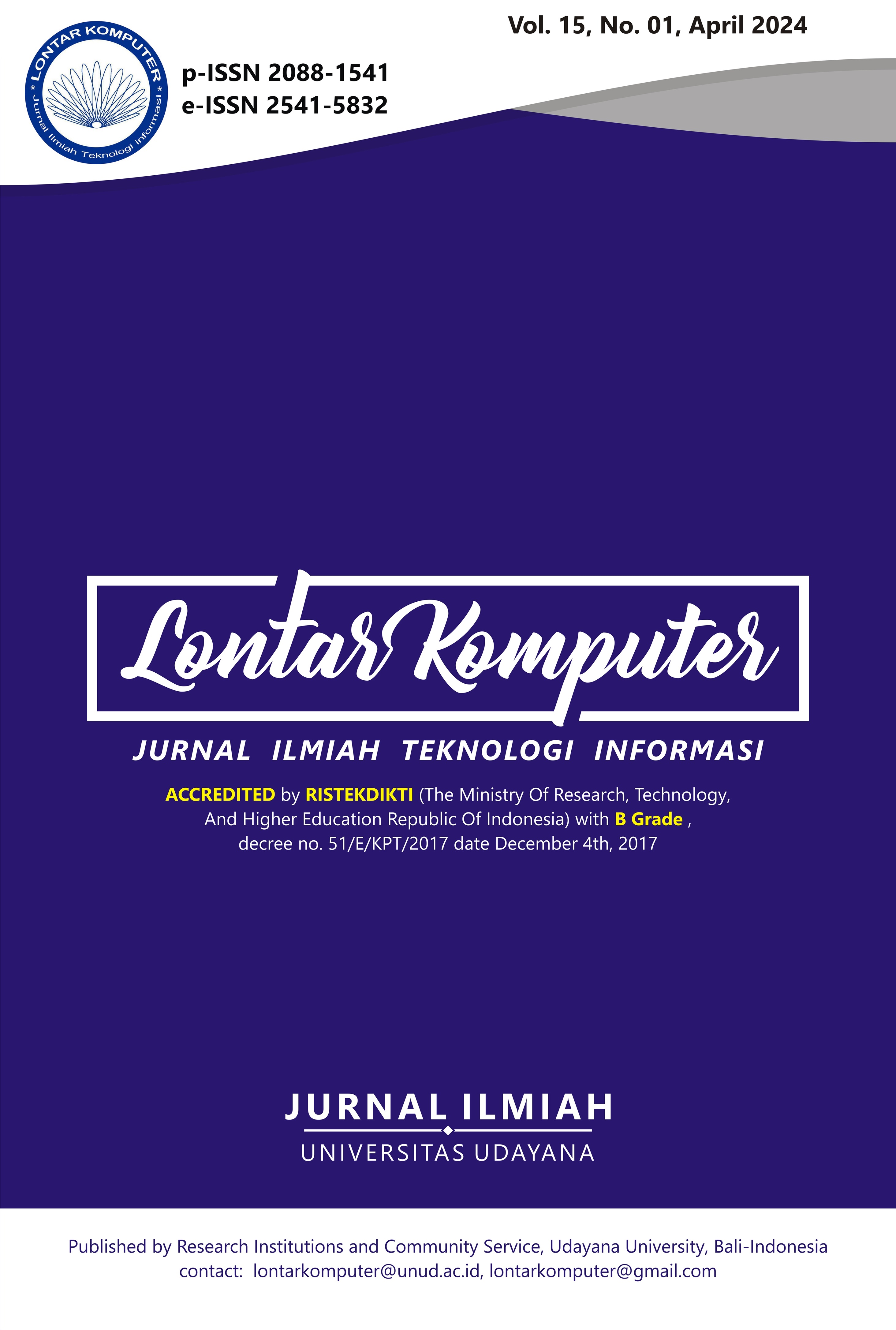Sentiment Analysis of Indonesian Youtube Reviews About Lesbian, Guy, Bisexual and Transgender (LGBT) using IndoBERT Fine Tuning
Abstract
Lesbian, gay, Bisexual, and Transgender (LGBT) is an individual who has a sexual orientation or gender identity that is different from the heterosexual majority. The LGBT community now dares to appear openly on social media; nowadays, social media is used as a source of information and a place to provide comments. The Indonesian state generally still views the LGBT community as deviant behavior. This research was conducted to understand Indonesian society's views on LGBT through YouTube and social media. The text mining method analyzes and classifies the counter or pro sentences expressed in the comments. The model used in this research is IndoBERT because the research object studied is Indonesian. IndoBERT is part of the Bidirectional Encoder Representation From Transformers (BERT) model. The data sources used were 1,493 data. The stages carried out in this research included the preprocessing stage, which included case folding, data cleaning, tokenization, stopword removal, stemming, and normalization, then the data labeling stage, and finally, the model building stage with IndoBERT Fine Tuning. The level of accuracy achieved using IndoBERT is 74%.
Downloads
References
[2] Tomi Satalar; Titik Hidayati, “Permasalahan yang Berhubungan dengan Lesbian, Gay, Bisexual, dan Transgender: Literatur Review,” Jurnal Keperawatan Jiwa (JKJ) Persatuan Perawat Nasional Indonesia, vol. Vol 9, No, 2021, doi:10.26714/jkj.9.1.2021.213-220.
[3] F. F. Abdulloh and I. R. Pambudi, “Analisis Sentimen Pengguna Youtube Terhadap Program Vaksin Covid-19,” CSRID (Computer Science Research and Its Development Journal), vol. 13, no. 3, p. 141, Nov. 2021, doi: 10.22303/csrid.13.3.2021.141-148.
[4] L. Parabhoi and P. Saha, “Sentiment Analysis of YouTube Comments on Koha Open Source Software Videos,” International Journal of Library and Information Studies, vol. 8, No. 4, pp. 96–102, 2018.
[5] N. P. V. D. Saraswati, N. Yudistira, and P. P. Adikara, “Analisis Sentimen terhadap Perundungan Siber pada Twitter menggunakan Algoritma Bidirectional Encoder Representations from Transformer (BERT),” Jurnal Pengembangan Teknologi Informasi dan Ilmu Komputer, vol. 7, no. 2, pp. 909–916, Mar. 2023, [Online]. Available: https://jptiik.ub.ac.id/index.php/j-ptiik/article/view/12345.
[6] C. A. Putri, “Analisis Sentimen Review Film Berbahasa Inggris Dengan Pendekatan Bidirectional Encoder Representations from Transformers,” JATISI (Jurnal Teknik Informatika dan Sistem Informasi), vol. 6, no. 2, pp. 181–193, Jan. 2020, doi: 10.35957/jatisi.v6i2.206.
[7] J. Devlin, M.-W. Chang, K. Lee, and K. Toutanova, “BERT: Pre-training of Deep Bidirectional Transformers for Language Understanding.” in Proceedings of NAACL-HLT, 2019, pp. 4171–4186.
[8] A. Elhan, M. K. D. Hardhienata, Y. Herdiyeni, S. H. Wijaya, and J. Adisantoso, “Analisis Sentimen Pengguna Twitter terhadap Vaksinasi COVID-19 di Indonesia menggunakan Algoritme Random Forest dan BERT,” Jurnal Ilmu Komputer dan Agri-informatika (JIKA), vol. 9, no. 2, pp. 199–211, Nov. 2022, doi: 10.29244/jika.9.2.199-211.
[9] A. Anjani, “ANALISIS SENTIMEN KAUM LGBT PADA MEDIA SOSIAL TWITTER MENGGUNAKAN ALGORITMA NAÏVE BAYES,” JTINFO : Jurnal Teknik Informatika, vol. 1, no. 2, pp. 1–8, 2022, doi: 10.02220/jtinfo.v1i2.259.
[10] N. T. L. Mustakim, M. Ridwan, “Implementasi Algoritma Support Vector Machine untuk Analisis Sentimen LGBT di Indonesia,” Bulletin of Artificial Intelligence, vol. 1, no. 2, pp. 36–42, 2022, [Online]. Available: https://journal.grahamitra.id/index.php/buai/article/view/31.
[11] T. Muhayat, A. Fauzi, and J. Indra, “Analisis Sentimen Terhadap Komentar Video Youtube Menggunakan Support Vector Machines,” Progresif : Jurnal Ilmiah Komputer, vol. 19, no. 1, pp. 231–240, 2023, [Online]. Available: http://ojs.stmikbanjarbaru.ac.id/index.php/progresif/article/view/1060.
[12] R. Asrianto and M. Herwinanda, “Analisis sentimen kenaikan harga kebutuhan pokok dimedia sosial youtube menggunakan algoritma support vector machine,” Jurnal CoSciTech (Computer Science and Information Technology, vol. 3, no. 3, pp. 431–440, Dec. 2022, doi: 10.37859/coscitech.v3i3.4368.
[13] A. R. I. B. Kurniawan, A. A. Aldino, “Sentimen Analisis Terhadap Kebijakan Penyelenggara Sistem Elektronik (PSE) Menggunakan Algoritma Bidirectional Encoder Representation From Transformers (BERT),” Jurnal Teknologi dan Sistem Informasi, vol. 3, no. 4, pp. 98–106, 2022, doi: 10.33365/jtsi.v3i4.2204.
[14] S. Dharmawan, V. C. Mawardi, and N. J. Perdana, “Klasifikasi Ujaran Kebencian Menggunakan Metode FeedForward Neural Network (IndoBERT),” Jurnal Ilmu Komputer dan Sistem Informasi (JIKSI), vol. 11, no. 1, Jun. 2023, doi: 10.24912/jiksi.v11i1.24066.
[15] EDWINA AYU CHRISTY, “Youtube comments on LGBT in Indonesia,” 2023. https://www.kaggle.com/datasets/edwinaayuchristy/youtube-comments-on-lgbt-inindonesia.
[16] T. N. Ph.D and A. Amalanathan, “DATA PREPROCESSING IN SENTIMENT ANALYSIS USING TWITTER DATA,” International Educational Applied Research Journal (IEARJ), vol. 3, pp. 89–92, 2019.
[17] H. Jayadianti, W. Kaswidjanti, A. T. Utomo, S. Saifullah, F. A. Dwiyanto, and R. Drezewski, “Sentiment analysis of Indonesian reviews using fine-tuning IndoBERT and R-CNN,” ILKOM: Jurnal Ilmiah, vol. 14, no. 3, pp. 348–354, Dec. 2022, doi: 10.33096/ilkom.v14i3.1505.348-354.
[18] DOsinga and D. Osinga, “Deep Learning Cookbook Notebooks.” https://github.com/DOsinga/deep_learning_cookbook.
[19] A. Tharwat, “Classification assessment methods,” Applied Computing and Informatics, vol. 17, no. 1, pp. 168–192, Jan. 2021, doi: 10.1016/j.aci.2018.08.003.
[20] J. Brzozowska, J. Pizoń, G. Baytikenova, A. Gola, A. M. Zakimova, and K. Piotrowska, “DATA ENGINEERING IN CRISP-DM PROCESS PRODUCTION DATA – CASE STUDY,” Applied Computer Science, 2023, [Online]. Available:
https://api.semanticscholar.org/CorpusID:264533715.

This work is licensed under a Creative Commons Attribution 4.0 International License.
The Authors submitting a manuscript do so on the understanding that if accepted for publication, the copyright of the article shall be assigned to Jurnal Lontar Komputer as the publisher of the journal. Copyright encompasses exclusive rights to reproduce and deliver the article in all forms and media, as well as translations. The reproduction of any part of this journal (printed or online) will be allowed only with written permission from Jurnal Lontar Komputer. The Editorial Board of Jurnal Lontar Komputer makes every effort to ensure that no wrong or misleading data, opinions, or statements be published in the journal.
 This work is licensed under a Creative Commons Attribution 4.0 International License.
This work is licensed under a Creative Commons Attribution 4.0 International License.























